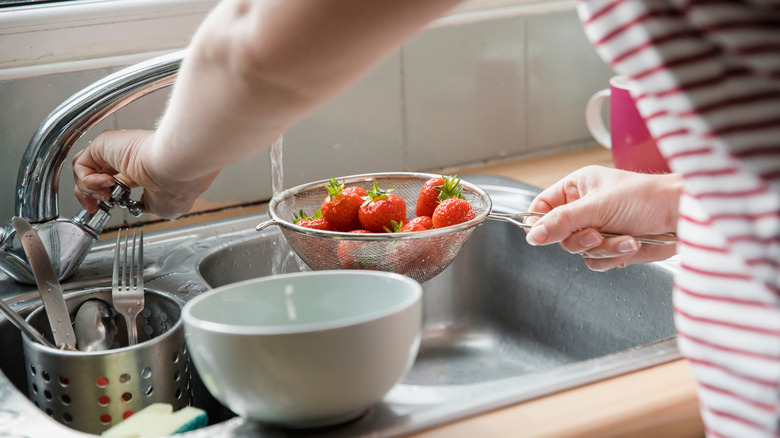Does Cold Weather Make Inflammation Worse?
For many people, cold weather is a fun time of year filled with snow sports, hot chocolate, and comfort food. But for others, low temperatures can translate into a season of increased pain and discomfort. That's because inflammation is affected by cold weather (via Health). While cold temperatures aren't the sole cause of increased inflammation, they can certainly worsen it.
"Anything that is a stress on the body, no matter if that's chemicals in food, a lack of sleep, stress or a sedentary lifestyle, can trigger inflammation," Carolyn Williams, registered dietician, told Health. "That can include temperature extremes."
Rainy days, in particular, can be troublesome. There's anecdotal evidence to suggest that increased humidity along with colder temperatures often lead to exacerbated pain associated with arthritis, according to Cleveland Clinic. This pain often occurs in the neck and other musculoskeletal body parts. Cold weather can also increase stiffness in your joints and muscles, increasing pain and discomfort. But fortunately, there are ways to manage inflammation, even on the coldest days.
Lifestyle modifications to reduce inflammation
If you're looking for ways to manage your inflammation in the winter, look no further. There are a few things you can do to help reduce and relieve increased swelling and pain (via Health). For instance, you can try eating more foods with anti-inflammatory properties. Berries, leafy greens, and cruciferous vegetables are all full of essential vitamins and powerful antioxidants that can help defend your body against increased inflammation.
Additionally, learning to manage stress can help reduce inflammation. You can help lower your stress levels by taking some time to yourself, limiting the use of screens, and engaging in movements you enjoy, like taking a walk in nature, according to Health.
It's also a good idea to stay limber and active during the colder months, especially if you have a history of arthritis and joint pain, according to Cleveland Clinic. Walking, stretching, and even swimming in a warm pool can help reduce and relieve weather-related inflammation. "Overall, maintaining mobility is the best way to fend off widespread joint pain without visiting your physician — and that's true in any kind of weather," Robert Bolash, pain management specialist, told Cleveland Clinic.


